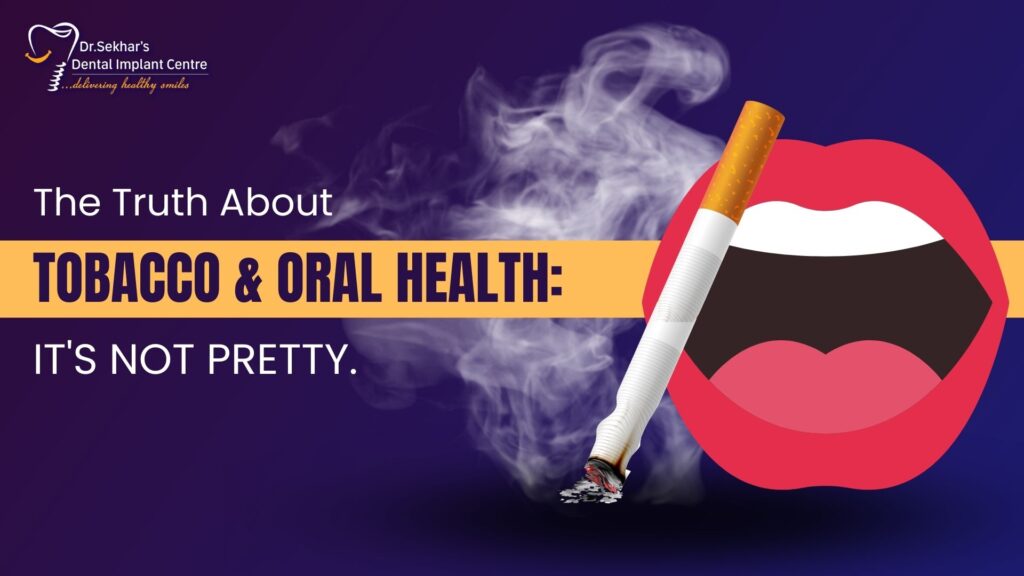Truth About Tobacco & Oral Health

This blog is on a topic that we all know very well – tobacco is bad for your mouth. Like, really bad. Whether you smoke it or chew it, tobacco can affect up your teeth, gums, and even cause cancer. Here are a few facts on what tobacco can do to your mouth, and why you should quit as soon as possible.
Tobacco and Oral Cancer
The worst thing that can happen from using tobacco is getting oral cancer. Oral cancer is a type of cancer that affects your mouth, lips, tongue, throat, and other parts of your mouth. It can kill you if you don’t catch it early and treat it. Tobacco is the main cause of oral cancer , because it has a bunch of chemicals that can damage your DNA and make your cell to muatate. The more you use tobacco and the longer you use it, the higher your risk of oral cancer. Smokeless tobacco, like chewing tobacco or snus, is especially bad because it can cause your mouth to have white or gray patches that can turn into cancer .
Tobacco and Gum Disease
Another big problem caused by tobacco is gum disease . Gum disease is when your gums and the bones that hold your teeth get infected and inflamed. It can make your teeth fall out, give you bad breath, and cause other issues. Tobacco makes your gums weaker by messing with the normal function of your gum cells. This makes it easier for bacteria to infect your gums and reduces blood flow to your gums. Tobacco also makes it harder for your body to fight infection and heal wounds in your mouth. As a result, smokers are more likely to have plaque and tartar buildup, bleeding gums, receding gums, and loose teeth than non-smokers.
Tobacco and Other Mouth Problems
Besides oral cancer and gum disease, tobacco can also cause other mouth problems such as:
- Tooth decay: Tobacco makes your teeth rot by reducing saliva flow, which helps wash away food and bacteria from your teeth. Tobacco also makes your teeth look ugly with yellow or brown stains and makes them more likely to get cavities.
- Alveolar osteitis: Tobacco can slow down the healing process after tooth extraction by affecting blood clot formation and increasing the risk of infection. This can result in a painful condition called alveolar osteitis or dry socket.
- Halitosis: Tobacco can give you bad breath by drying out your mouth, changing your sense of smell, and leaving a nasty smell on your breath.
How to Quit Tobacco for a Healthier Mouth
The best way to avoid tobacco-related mouth problems is to quit tobacco as soon as possible. Quitting tobacco can improve your mouth health and lower your risk of oral cancer and other diseases . But quitting tobacco can be hard for many people because of physical and psychological addiction. That’s why you need professional help and support to quit successfully. At Dr Sekhar’s Dental Clinic and Implant center, we can help you quit tobacco by:
- Giving you information and education on how tobacco affects your mouth
- Checking how ready and motivated you are to quit
- Suggesting nicotine replacement therapy (NRT) or other medications to help you deal with withdrawal symptoms
- Sending you to counseling or behavioral therapy to help you change your habits and deal with triggers
- Keeping track of your progress and giving you encouragement and feedback
- Doing regular oral exams and screenings to check for any signs of oral cancer or other problems
If you are a tobacco user who wants to quit for a healthier mouth, contact our experts today.


hQIpPcxqRzVY